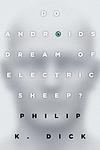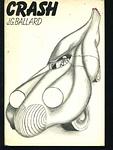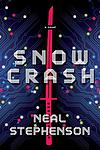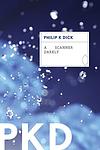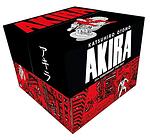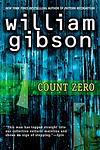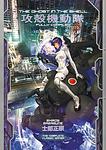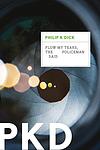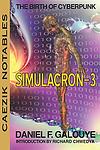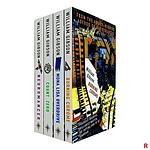The Greatest "Cyberpunk" Books of All Time
Click to learn how this list is calculated.
This list represents a comprehensive and trusted collection of the greatest books. Developed through a specialized algorithm, it brings together 288 'best of' book lists to form a definitive guide to the world's most acclaimed books. For those interested in how these books are chosen, additional details can be found on the rankings page.
Genres
Cyberpunk is a subgenre of science fiction that emerged in the early 1980s, characterized by its focus on a dystopian future where advanced technology and cybernetics are juxtaposed with societal decay and a breakdown of social order. Set in not-so-distant futures, cyberpunk narratives often explore themes of identity, artificial intelligence, corporate hegemony, and the fusion of the organic with the synthetic. The genre is known for its gritty, noir-inspired aesthetics, featuring protagonists who are hackers, rebels, or outcasts navigating oppressive, high-tech urban landscapes. Through vivid depictions of cybernetic enhancements, virtual realities, and the omnipresence of the internet, cyberpunk books delve into the ethical and philosophical dilemmas posed by technological advancement, offering a critical examination of the potential consequences of unchecked corporate power and the erosion of human connection in a digital age.
Countries
Date Range
Reading Statistics
Click the button below to see how many of these books you've read!
Download
If you're interested in downloading this list as a CSV file for use in a spreadsheet application, you can easily do so by clicking the button below. Please note that to ensure a manageable file size and faster download, the CSV will include details for only the first 500 books.
Download-
1. Neuromancer by William Gibson
In this groundbreaking cyberpunk novel, a washed-up computer hacker is hired by a mysterious employer to pull off the ultimate hack. As he navigates a dystopian future filled with artificial intelligence, corporate espionage, and virtual reality, he must confront his own past and the dark realities of the digital world. The narrative explores themes of technology, identity, and consciousness, pushing the boundaries of science fiction literature.
-
2. Do Androids Dream of Electric Sheep? by Philip K. Dick
Set in a post-apocalyptic world, the novel presents a future where Earth's life has been greatly damaged by a nuclear global war, leaving most species extinct. The remaining human population has been encouraged to emigrate to off-world colonies to preserve the human race. Those who remain on Earth are tasked with maintaining the ecological balance by owning and caring for animals, replacing extinct species with mechanical replicas when necessary. The story revolves around a bounty hunter, who is tasked with "retiring" rogue androids that pose a threat to humans, and his emotional and moral struggles as he goes about his work.
-
3. Crash: A Novel by J. G. Ballard
The novel revolves around a man who becomes sexually aroused by staging and participating in real car-crashes, a fetish that spirals further out of control when he meets a like-minded woman. It explores the disturbing intersection of technology, sexuality, and violence, pushing the boundaries of social norms and challenging the reader's perception of reality.
-
4. Snow Crash by Neal Stephenson
In a future America where the federal government has largely collapsed and been replaced by corporate entities, a computer hacker and pizza delivery driver becomes embroiled in a plot involving a dangerous new drug and a computer virus called "Snow Crash". He is joined by a teenage skateboard courier and a host of other characters in a high-stakes race to uncover the truth behind the virus and its origins in ancient Sumerian culture. The narrative explores themes of linguistics, philosophy, computer science, religion, and cryptography.
-
5. Cryptonomicon by Neal Stephenson
The book is a sprawling narrative that intertwines two timelines: the first during World War II, focusing on the efforts of cryptographers and mathematicians working to break Axis codes, and the second in the late 20th century, following a group of entrepreneurs and hackers establishing a data haven in Southeast Asia. The novel explores themes of cryptography, mathematics, and the history of computing, weaving together real historical figures with fictional characters. As the plot unfolds across different continents and eras, it delves into the impact of information technology on society and the perpetual conflict between governments and individuals over the control of information and privacy.
-
6. The Three Stigmata Of Palmer Eldritch by Philip K. Dick
"The Three Stigmata of Palmer Eldritch" is a mind-bending science fiction novel set in a future where humanity has colonized other planets. The story follows a group of individuals who become entangled in the mysterious and hallucinatory world of a powerful drug called Chew-Z. As they navigate through the blurred lines between reality and illusion, they must confront their deepest fears and question the nature of existence itself. With its thought-provoking themes and intricate plot twists, the book explores the boundaries of perception, identity, and the human condition.
-
7. A Scanner Darkly by Philip K. Dick
In a dystopian future where the government wages war on drugs, undercover agent Bob Arctor is assigned to infiltrate a group of drug addicts. But as he becomes more entangled in their lives, Bob's own addiction to the highly addictive Substance D starts to blur the lines between reality and hallucination. As Bob's mental state deteriorates, he must navigate a world of paranoia, deception, and his own fractured identity, questioning the nature of truth and the consequences of his actions.
-
8. Akira by Katsuhiro Otomo
Set in a post-apocalyptic Neo-Tokyo, this graphic novel follows the lives of two teenage friends, Tetsuo and Kaneda, who are members of a biker gang. After a motorcycle accident, Tetsuo develops telekinetic abilities and is taken by the military, which fears his growing powers might unleash another cataclysmic event similar to the one that destroyed Tokyo years earlier. As Tetsuo's powers spiral out of control, Kaneda, along with a group of rebels and psychics, must try to stop him and uncover the secrets of a mysterious entity known as "Akira," which is at the heart of the government's experiments and the city's destruction. The narrative explores themes of power, corruption, and the quest for identity against a backdrop of cyberpunk visuals and intense action.
-
9. The Diamond Age by Neal Stephenson
Set in a future where nanotechnology has revolutionized society, the narrative revolves around a young girl named Nell who comes into possession of a powerful, interactive book called "A Young Lady's Illustrated Primer." This book, designed to educate and guide a young girl to a more enlightened state, was originally intended for an elite clientele but falls into Nell's hands by chance. As Nell uses the primer to navigate her complex, cyberpunk world, the story explores themes of education, social class, and the impact of technology on society. The book weaves together the lives of various characters across different strata of a stratified culture, examining how access to technology can both empower and divide.
-
10. Ready Player One by Ernest Cline
In a dystopian future, the world has turned to a virtual reality game for solace and escape. The game's creator has passed away and left his massive fortune to the player who can solve his complex puzzles and challenges hidden within the game. The protagonist, a young, impoverished boy, becomes a contender in this high-stakes competition, battling corporate entities and other players in a race to claim the ultimate prize. As the lines between the virtual and real world blur, the protagonist must use his wits and courage to succeed.
-
11. The Cyberiad by Stanislaw Lem
"The Cyberiad" is a collection of science fiction short stories that take place in a futuristic universe where robots and artificial intelligence are prevalent. The book follows the adventures of two master inventors, Trurl and Klapaucius, as they encounter various challenges and engage in extraordinary feats of engineering and problem-solving. Through witty and imaginative storytelling, the book explores themes of technology, creativity, and the nature of humanity, offering a captivating and thought-provoking reading experience.
-
12. Count Zero by William Gibson
In a future where cybernetics and biotechnology have become commonplace, a computer hacker named Turner is hired by a mysterious employer to help a scientist defect from one mega-corporation to another. Meanwhile, a young man named Bobby Newmark, also known as "Count Zero," is introduced to the dangerous world of cybernetic hacking. Their stories intertwine in a complex narrative involving corporate espionage, artificial intelligence, and voodoo gods.
-
13. Mona Lisa Overdrive by William Gibson
"Mona Lisa Overdrive" is a cyberpunk novel that follows the interconnected stories of several characters, including a professional kidnapper, a reclusive artist, a tech mogul's daughter, and a young prostitute. Set in a dystopian future, the narrative explores themes of artificial intelligence, virtual reality, and corporate power. The characters' lives become intertwined as they navigate a world dominated by advanced technology and powerful corporations, leading to a thrilling climax.
-
14. Schismatrix Plus by Bruce Sterling
This book is a comprehensive collection that not only includes the original novel set in a future where humanity has diverged into various factions based on their ideologies and technological enhancements but also encompasses additional short stories set in the same universe. The narrative explores complex themes of post-human evolution, political intrigue, and the socio-economic dynamics between the Mechanists, who augment their bodies with machines, and the Shapers, who genetically modify themselves to adapt and evolve. Through the protagonist's journey across space habitats, asteroid colonies, and alien encounters, the work delves into the essence of human identity, the potential futures of civilization, and the ethical dilemmas posed by advanced technology.
-
15. Pattern Recognition by William Gibson
The novel follows Cayce Pollard, a marketing consultant with an intuitive sensitivity to corporate symbols, as she embarks on a global quest to find the creator of mysterious video clips that have garnered a cult following on the internet. Her journey takes her from London to Tokyo and then to Russia, navigating the intersecting worlds of advertising, technology, and espionage. As she delves deeper into the origin of the footage, she encounters various characters with their own vested interests, and her ability to discern patterns becomes crucial in solving the puzzle. The narrative explores themes of globalization, identity, and the impact of technology on society.
-
16. Permutation City by Greg Egan
"Permutation City" by Greg Egan is a science fiction novel set in a future where people can create digital copies of themselves, known as "copies," and upload their consciousness into virtual reality. The story follows a computer scientist named Paul Durham who is obsessed with creating a perfect copy of himself. As he delves deeper into the possibilities of digital existence, he uncovers profound philosophical questions about identity, consciousness, and the nature of reality. Egan's thought-provoking narrative explores the ethical and existential implications of creating and living as digital beings.
-
17. The Ghost In The Shell by Shirow Masamune
This science fiction narrative delves into a future where cybernetic enhancements and artificial intelligence have blurred the lines between humanity and machines. Set against a backdrop of political intrigue and cyber warfare, the story follows Major Motoko Kusanagi, a cyborg operative of a government agency, as she hunts a mysterious hacker known as the Puppet Master. Through her pursuit, the narrative explores themes of identity, consciousness, and the nature of the soul, questioning what it truly means to be human in a world where the physical and digital realms are indistinguishably intertwined.
-
18. Flow My Tears, The Policeman Said by Philip K. Dick
In a dystopian future, Jason Taverner, a famous television star, wakes up one morning to find that he has been erased from existence. With no identification or records, he becomes a fugitive and is relentlessly pursued by the police. As he navigates through a world where his former life no longer exists, Jason must confront the truth about his identity and unravel the mysteries surrounding his disappearance.
-
19. Simulacron 3 by Daniel F. Galouye
This science fiction novel explores the concept of virtual reality and the nature of reality itself, set in a world where a computer simulation, designed to predict consumer trends, evolves into a fully immersive virtual city. The protagonist, a programmer involved with the project, discovers unsettling evidence that his own reality might also be a simulation, leading him on a quest to uncover the truth. As he delves deeper, he faces existential questions and the challenge of distinguishing between the simulated and the real, pushing the boundaries of human perception and technology. The narrative delves into themes of consciousness, identity, and the ethical implications of creating simulated realities.
-
20. Burning Chrome by William Gibson
"Burning Chrome" is a collection of ten science fiction short stories that explore the intersection of technology, humanity, and the virtual world. Set in a dystopian future, the stories delve into themes of cybernetics, artificial intelligence, and the consequences of a hyper-connected society. Each story offers a unique glimpse into a world where hackers, mercenaries, and outcasts navigate a complex web of virtual reality and high-stakes heists, ultimately challenging the boundaries of what it means to be human.
-
21. Virtual Light by William Gibson
In a near-future, post-apocalyptic California, a young bicycle messenger named Chevette finds herself in possession of a pair of high-tech glasses that hold a valuable secret. As she becomes entangled in a dangerous game of corporate espionage and political conspiracy, she crosses paths with a former police officer turned private investigator named Rydell. Together, they navigate a gritty and visually stunning world filled with corrupt corporations, underground subcultures, and virtual reality technology, all while trying to protect the truth and survive the chaos around them.
-
22. Rainbows End by Vernor Vinge
Set in the near future, the novel explores a world transformed by technological advancements in communication, security, and augmented reality. The protagonist, a man who has recovered from Alzheimer's thanks to new medical technology, struggles to adapt to the fast-paced changes and reconnect with his estranged family. As he navigates this brave new world, he becomes entangled in a complex plot involving an omnipresent surveillance system, a potential global conspiracy, and the power of information control. The story delves into themes of intelligence, consciousness, and the impact of technology on society, questioning the nature of reality in a digitized age.
-
23. Autonomous by Annalee Newitz
In a future where biotech has advanced to create patented drugs with the power to extend life, a pirate with a submarine traverses the seas, distributing cheap generic versions of these medications to those who can't afford them. Meanwhile, a military agent and his robot sidekick are on a relentless pursuit to stop her, enforcing the intellectual property laws of powerful pharmaceutical companies. As the chase intensifies, the boundaries between human and machine blur, raising profound questions about autonomy, individual rights, and the ethics of scientific discovery.
-
24. Altered Carbon by Richard Morgan
This novel is a gripping foray into a future where human consciousness can be stored digitally and transferred between bodies, known as "sleeves." The story follows Takeshi Kovacs, a former elite soldier turned private investigator, who is hired to solve a wealthy man's murder. As Kovacs delves into the case, he navigates a world of corporate intrigue, futuristic technology, and morally ambiguous choices. The narrative explores themes of identity, mortality, and the essence of humanity, set against a backdrop of cyberpunk noir and visceral action.
-
25. Synners by Pat Cadigan
"Synners" by Pat Cadigan is a cyberpunk novel set in a near-future where virtual reality technology has become a part of everyday life. The story follows a group of individuals who become entangled in a dangerous conspiracy involving a new form of brain implant that allows people to directly experience the thoughts and emotions of others. As they navigate the complex world of virtual reality and the dark underbelly of the technology industry, the characters must confront their own fears and desires, ultimately questioning the nature of identity and the boundaries between human and machine.
Reading Statistics
Click the button below to see how many of these books you've read!
Download
If you're interested in downloading this list as a CSV file for use in a spreadsheet application, you can easily do so by clicking the button below. Please note that to ensure a manageable file size and faster download, the CSV will include details for only the first 500 books.
Download
